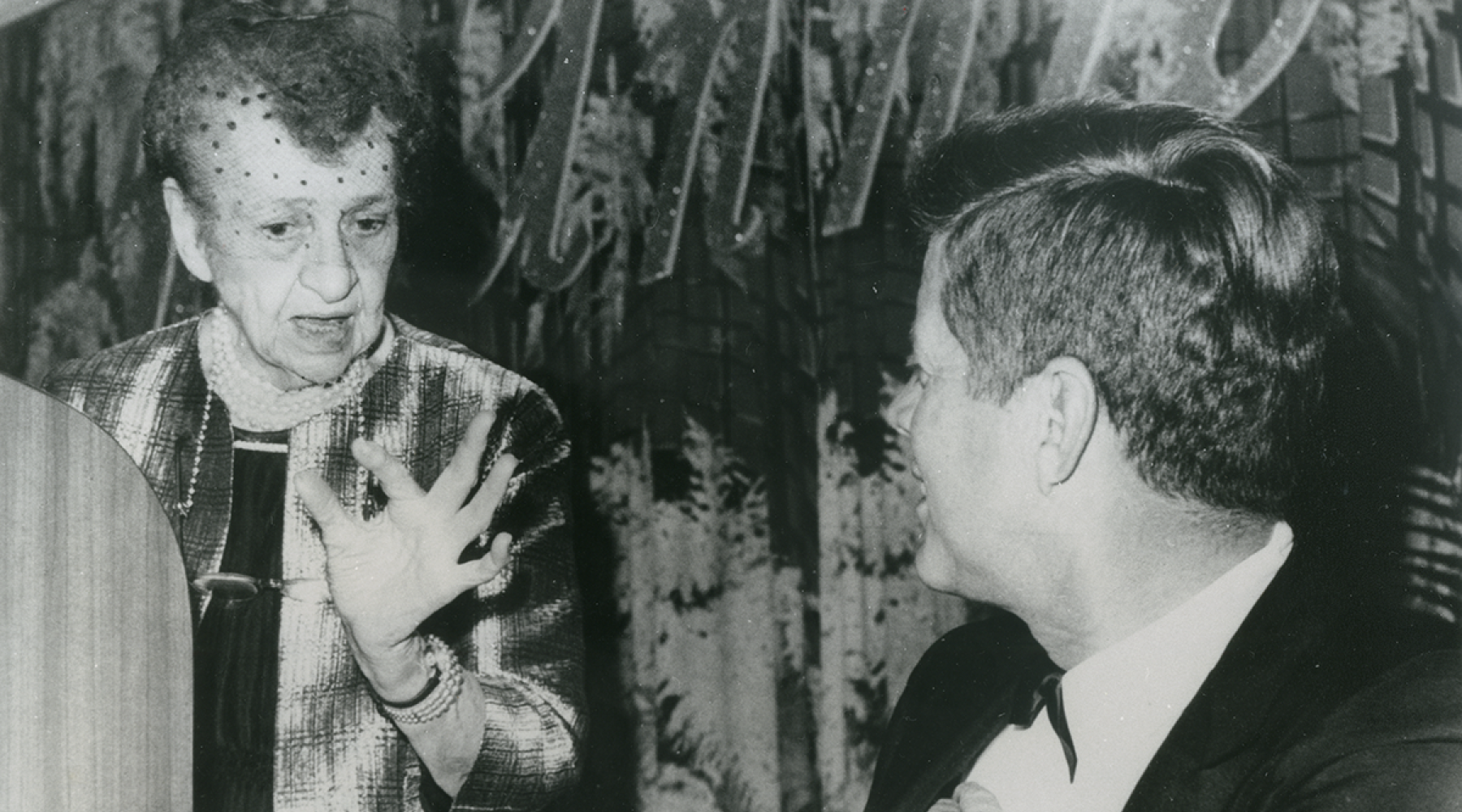
Kheel Exhibit Honors Labor Champion “Ahead of Her Time”
Frances Perkins, who left her progressive mark on New York City, New York state, the nation and Cornell, will be celebrated in an exhibit opening Friday in the ILR School, where she served on the faculty until she died at age 85 in 1965.
Items from across her career, including eight years of teaching at ILR, have been curated by the Kheel Center for Labor-Management Documentation and Archives in Catherwood Library, part of Cornell University Library and located in the ILR School.
The “Frances Perkins and the New Deal” exhibit will be unveiled at an open house from 1 to 3 p.m. this Friday in the Catherwood lobby as part of Cornell Reunion Weekend. Kheel staff will be on hand to answer questions and host a mini version of Catherwood’s Cookie Day complete with a cookie-themed craft activity for children.
Open to the public through Dec. 31, the exhibit features artifacts such as photographs, ILR teaching syllabi, audio clips from Perkins’ ILR lectures, a signed copy of her biography of President Franklin Roosevelt and the political cartoon credited with coining the “New Deal” moniker. Other items include a photo of Perkins describing to President John F. Kennedy, a fan, the enormous cockroaches she found when she moved into her U.S Department of Labor office.
Cornell University Library events this weekend include several specifically targeted to ILR alumni, such as an ILR history showcase from 10 a.m. to noon on Friday in the Kheel Center reading room. ILRies will also be able to visit the showcase as part of the Catherwood Library tour on Saturday morning after the school’s Reunion breakfast. The showcase features photographs, early blueprints of the school, scrapbooks, ILR Dean Martin P. Catherwood’s robe from his 1930 Cornell Ph.D. graduation and other memorabilia.
Perkins mediated numerous labor disputes statewide and nationally. As U.S. labor secretary, Perkins was an architect of Social Security. Known as "the mother of the New Deal," she is recognized as driving the creation of unemployment insurance, the Fair Labor Standards Act, a minimum wage and the 40-hour work week.
“It's so fascinating, the work she was doing,” said Steven Calco, Kheel Center research archivist. “This notion of labor and management working together that was exemplified by the ILR School when it was founded in 1945 is what Perkins embodied through her public service work. She looked at things through a critical lens, examining every angle. She maintained this uncanny ability to work with opposing groups to advance social causes.”
“She prided herself on teaching the next generation about labor-management peace. It fits with her career, so it’s kind of perfect that she ended her professional life here.”
“Her impact is still so important,” Calco said, noting that she was galvanized in her fight for workers’ rights after witnessing the 1911 Triangle Fire in New York City that killed 146 people. During an October event at the new memorial commemorating the tragedy, Perkins’ role in driving change after the fire was recognized during a ceremony at the fire site, which still stands.
Her quote from a 1964 lecture is etched on the building: “Every one of them was killed, everybody who jumped was killed.”
Calco said that Perkins began advocating for a national healthcare system in the 1930s, which generated resistance from medical associations across the country. “Nearly a century later, universal health care is still hotly debated today. Perkins was astute at understanding the systemic problems in society and always tried to treat societal ills with progressive legislation that benefited the working class. She was ahead of her time.” Her legacy will be celebrated locally when a statue of her is unveiled on Aug. 17 in downtown Ithaca.
The exhibit includes Perkins' early work with the Consumers' League of New York and Chicago’s Hull House, where she began her crusade for fighting for social causes, and highlights her Factory Commission work in New York state. In one report, she detailed conditions in New York bakeries. "Rats are common throughout old bakeries, and for that reason cats are kept. ... I have seen cats jump over the dough mixture, and walking freely on the tray where the bread was being mixed, and indeed walking through the flour, - not in this particular bakery, but another I once saw kittens born on the bread tray."
In 1933, Roosevelt appointed Perkins as U.S. labor secretary; she was the first woman to hold a cabinet position. Katie Keegan, Kheel Center reference assistant and co-curator of the exhibit, said, “Frances Perkins showed so many women that opportunities, even if limited, can be accomplished. She aimed to dismantle gender stereotypes and pave the way for future generations of women to have a seat at the table.”